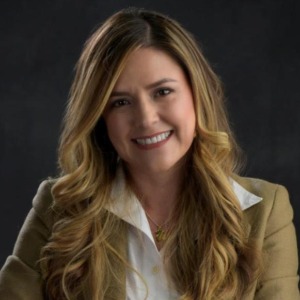Title : Sustainability in action: Overcoming structural barriers to responsible energy in Colombia the MECL experience
Abstract:
As global energy companies strive to meet production targets while advancing environmental and social goals, the need for cost-optimized, locally adapted sustainability strategies has never been more critical. In emerging markets like Colombia, these challenges are amplified by regulatory complexity, community expectations, and infrastructure limitations.
This presentation will explore the experience of Mansarovar Energy Colombia Ltd. (MECL), a joint venture between SINOPEC and ONGC, and how it has developed a practical, results-driven model for responsible growth under constrained conditions. Key topics will include:
Cost Optimization and Operational Control:
MECL reactivated its Heavy Equipment Business Unit (HEBU) in 2025 to internalize rig operations previously outsourced to third-party contractors. The transition, supported by a robust supply chain and labor strategy, will achieved annual savings of USD $3–4 million, enhanced flexibility and reduced field disruptions through direct local hiring.
Sustainable Social Investment:
With COP 1.2 billion invested in 2023 alone, MECL’s social programs—such as Agroemprende Cacao, benefiting over 400 rural families—combine economic development with peacebuilding and ecosystem restoration in post-conflict zones.
Energy Self-Sufficiency and Gas Commercialization:
MECL not only uses produced gas to supply over 80% of its operational energy needs, but also launched a gas commercialization strategy in 2025. A 5-year contract was secured with Neo Energy under a “take-or- pay” and “take-and-pay” scheme, including quality clauses, advance payments, and renegotiation terms after two years. This monetizes surplus gas, supports Colombia’s domestic energy demand, and aligns with the company’s emissions reduction goals.
Supply Chain Innovation for ESG Integration:
From contract restructuring to local procurement and lifecycle cost controls, MECL’s supply chain team played a central role in ensuring ESG objectives were embedded into financial and operational decisions.
MECL’s Executive Vice-president of Corporate Affairs and Business area played a crucial role in designing this transition—standardizing procurement, renegotiating vendor terms, aligning contracts with community agreements, and implementing lifecycle cost tracking for critical equipment. These strategies reduced waste, strengthened community relations, and ensured continuity of operations without reliance on foreign contractors.
Audience Takeaway:
The audience will learn how a mid-sized oil & gas company operating in an emerging market has successfully aligned cost optimization, operational efficiency, and sustainability in a highly complex socio- environmental context.
Specifically, attendees will gain insights into:
- How internalizing rig operations through the reactivation of a Heavy Equipment Business Unit (HEBU) reduced costs by up to USD $4 million annually, improved drilling efficiency, and strengthened labor and community relations.
- How targeted social investment programs, like Agroemprende Cacao, create long-term value by supporting rural economies and peacebuilding in post-conflict zones.
- How MECL’s gas commercialization strategy enabled the monetization of surplus gas through a structured 5-year contract, balancing energy transition objectives with financial discipline via take- or-pay and take-and-pay structures.
- How supply chain design—from vendor management to lifecycle cost analysis—can become a driver of both ESG compliance and operational excellence.
Overall, the audience will leave with actionable strategies to replicate this integrated model in other developing regions facing similar regulatory, social, and operational constraints.



